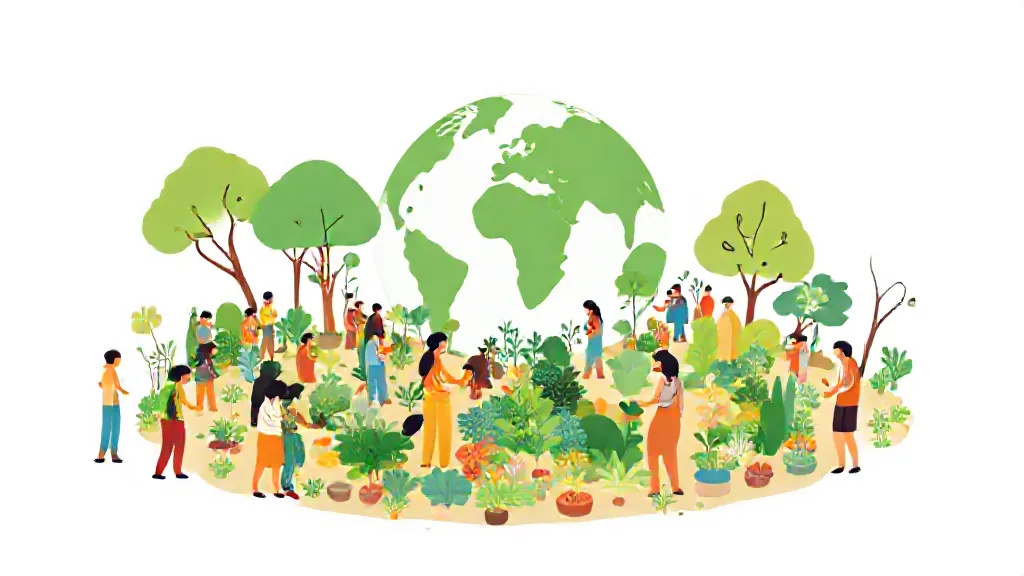In an era where global environmental issues seem overwhelming, local actions have emerged as powerful catalysts for change. The interconnectedness of our world means that what happens at the community level can significantly influence broader environmental outcomes. Local initiatives, ranging from community gardens to waste reduction programs, are not just isolated efforts; they are part of a larger tapestry of global environmental movements.
Understanding where local action amplifies global impact is essential for fostering sustainable practices that resonate across borders.
The Role of Community Engagement in Environmental Stewardship
Community engagement plays a pivotal role in environmental stewardship. When local populations are involved in decision-making processes regarding their environment, they are more likely to take ownership of the outcomes.
For instance, in cities like San Francisco, community-led efforts to reduce waste have resulted in one of the highest recycling rates in the United States. These initiatives not only promote local sustainability but also set a precedent for other cities globally, illustrating how grassroots movements can inspire widespread change.
Case Studies of Local Actions with Global Repercussions
Several case studies highlight how local actions can lead to significant global impacts.
The transition to renewable energy in small towns, such as Greensburg, Kansas, serves as a prime example. After being devastated by a tornado in 2007, the community chose to rebuild using sustainable practices, including wind energy. This decision not only transformed the town but also demonstrated to other communities the viability and benefits of renewable energy, influencing policy changes and inspiring similar initiatives worldwide.
Grassroots Movements and Policy Changes
Grassroots movements often act as the driving force behind significant policy changes at higher levels of government. The global climate strikes initiated by youth activists in 2018 exemplify this phenomenon. Originating from a local school strike in Sweden, the movement quickly gained momentum, leading to millions of participants worldwide.
This local action prompted governments to reconsider their environmental policies, showcasing the power of collective grassroots efforts to influence global agendas.
The Importance of Education and Awareness
Education and awareness are critical components of local actions that amplify global impact. Programs that educate communities about environmental issues, such as climate change and biodiversity loss, empower individuals to take meaningful steps towards sustainability.
For example, local workshops on sustainable farming practices not only benefit the immediate community but also contribute to global food security by promoting environmentally friendly agricultural methods that can be adopted elsewhere.
Innovative Solutions from Local Contexts
Local contexts often generate innovative solutions to environmental challenges that can be scaled globally. For instance, urban farming initiatives in cities like Detroit have transformed vacant lots into productive green spaces, addressing food deserts while also promoting biodiversity.
These local solutions can serve as models for other urban areas facing similar challenges, demonstrating how localized efforts can have far-reaching implications for global food systems and environmental health.
The Interconnectedness of Local and Global Systems
Understanding the interconnectedness of local and global systems is crucial for recognizing the potential of local actions. Environmental issues such as plastic pollution, deforestation, and climate change do not adhere to political borders.
Local initiatives aimed at reducing plastic use, such as beach clean-ups and plastic-free campaigns, contribute to global efforts to combat pollution in oceans and waterways. This interconnected approach emphasizes that local actions are integral to addressing global environmental crises.
Future Directions for Local Actions
Looking ahead, the future of local actions in amplifying global impact lies in collaboration and innovation.
Partnerships between local governments, non-profits, and businesses can enhance the effectiveness of community initiatives. Additionally, leveraging technology to share successful local strategies can inspire others to replicate these efforts globally. The integration of traditional knowledge with modern practices can also lead to more sustainable solutions that resonate with diverse communities.
Conclusion: Empowering Local Communities for Global Change
In conclusion, local actions are not merely reactive measures; they are proactive steps that can lead to significant global impacts. By empowering communities to engage in sustainable practices, fostering innovative solutions, and recognizing the interconnectedness of environmental issues, we can create a more sustainable future. The journey towards global environmental change begins with local action, illustrating that every small effort contributes to the larger goal of planetary health and sustainability.
